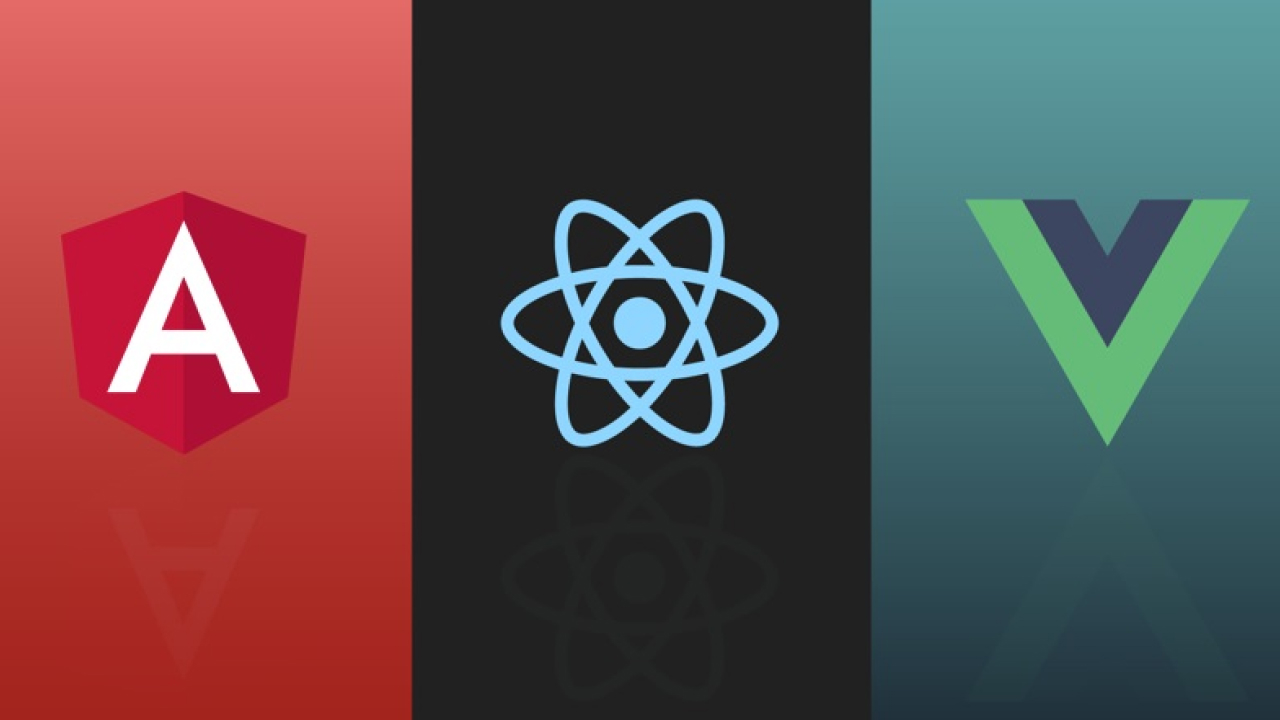FinTech companies can hardly succeed without smart corporate software in the fast-changing business environment. They need one to plan a budget, maintain a high level of security, optimize financial services, and enhance the user experience. To achieve these goals, .NET for FinTech has become one of the most productive and efficient frameworks. Not only does it allow to create dynamic and high-quality applications, but also minimizes data communication costs drastically. No wonder its popularity jumped from 34.2% to 34.55% in 2022.
If you decide to launch a FinTech product about to conquer the market niche, using .NET is the best solution. Let’s figure out why!
.NET Framework in a Nutshell
.NET is a free and open-source software development framework developed by Microsoft. It offers programming instructions for different types of applications, including web and mobile. .NET Framework consists of the Framework Class Library (FCL) and the Common Language Runtime (CLR).
These essential elements provide language interoperability across C#, F#, C++, and Visual Basic. Companies like Samsung Electronics, Intel, Cisco, Symphony, and Citrix have been using .NET for a while now, pointing out the accessibility, flexibility, and reliability offered by the framework.
.NET for FinTech development has proved its worth as a progressive software development framework. In fact, there are a lot of areas where .NET development solutions can be relevant, including:
- Enterprise applications. .NET Framework is perfect for creating different types of corporate software. Thus, it can help keep business operations smooth, whether it comes to ERP or CMS systems.
- Mobile applications. NET Framework helps develop cross-platform mobile applications as well as add new features to existing apps.
- Web applications. .NET Framework can be used to build software that enables efficient digital transformation for commercial companies.
- Internet of Things. .NET Framework helps companies create applications with advanced features by setting the connection between the Internet of Things network and related devices.
By the way, .NET Framework used to be supported on Windows only. This is not the case anymore. It is now perfectly interpreted on UNIX systems, such as Linux and Macintosh computers.
Pros and Cons of .NET Framework
.NET is a well-designed framework with a broad spectrum of capabilities. A talented web development team who knows how to treat it right can tailor a truly unique user experience with its help. Before you decide to use this framework for your particular FinTech project, however, make sure to explore .NET from all different angles.
Advantages
Productivity
.NET Framework’s programming concept helps developers conveniently create and deploy applications. In this case, the use of extensive class libraries is mandatory. A one-time setup can finalize the development process quickly. The resulting applications show a better performance leading to higher KPIs.
Safety and security
.NET creates a safe environment using a set of security techniques. It offers built-in authentication and encryption technology required for creating well-secured apps. What’s good is that you are free to close and open user access to different systems whenever needed - just use a unique username and password.
Stability and scalability
.NET Framework can help expanding companies deal with the growing traffic. It can minimize possible delays in the workflow without changing anything in the application itself. It can be used to update the code to benefit from newer technologies and quicker algorithms.
Flexibility of use
.NET allows you to develop applications across different platforms. As a developer, you can reuse the code in a similar development environment. Whether a company needs an iOS, Android, or Windows application, it can ask developers to build one for all. Even for high-scale microservices, .NET Framework can be of great value. Supporting multiple platforms at once, it offers high-level functionality.
Deployment ease
.NET Framework demonstrates deployment ease due to numerous features such as no-impact apps, restricted code sharing, and side-by-side versioning. The safe code execution keeps code deployment with the minimum conflicts involved.
Consistency of processes
.NET enables streamlined management of a bunch of processes. Even if one process has flaws, another can be completed effortlessly. Thus, managing the running programs and handling upcoming requests becomes easier.
Dependable caching system
.NET Framework can help you change caching technology by adjusting it to the project needs. As a result, the overall performance and scale can be taken to a new level.
Disadvantages
Dependence on a supplier
The problem of memory leaks is not a rare thing among modern technologies. .NET doesn’t make an exception here. It has been widely criticized for memory-related issues. Engineers are still working on possible solutions to this problem.
Poor object-relational support
Updates are necessary for every technology. The issue appears when updates prevent the previous version from being released. Working on the Object-Oriented Programming Concept, .NET relies on objects rather than actions. To maintain high performance, the regular support of data-driven software is required. The Entity Framework aims to protect .NET Framework from hazardous activities. Some experts say the latter isn’t flexible enough to support all the available database designs.
Speed restrictions
The speed of the programs is considerably low, 40%-50%, even for purely computational algorithms. It may seem a lot. But considering the constantly growing performance of new hardware models, it may not be enough.
Why Fintech Companies Use .NET
The niche of FinTech is quite specific. It determines the technological innovations in the implementation of financial services. In this context, .NET in FinTech projects has become a saving grace for many reasons. One of the primary ones is that .NET features high computing power. Corporate apps have to handle complex errors and load-sharing issues despite coming and going traffic.
When dealing with .NET, developers aim to solve unique problems for FinTech companies. They can connect with the existing infrastructure and proceed with the development process. And if safety is high on the priority list, as it should be, .NET happens to be a perfect choice.
.NET as the Next-Generation Technology for FinTech
.NET is a top-notch web development framework that has become a top choice among FinTech companies. The future seems to offer even more opportunities for this technology. Here are the main reasons why use .NET for FinTech app development at all:
- High performance. The payment gateways provided by FinTech apps must offer fast loading times. And network intensity turns out to be a main challenge for many demographics. With .NET, it is now possible to build high-performance software with seamless navigation and smooth performance.
- API integration.API integration is an essential feature for financial app development as it extends the software capabilities and adds more features. Tanks to abstract classes, coding needs get reduced to the minimum. As a result, the software can work without any glitches or bugs.
- Enhanced security. Security is a priority for a finance application due to the amount of personal information and sensitive customer data it has to process. Such critical information puts software at risk of cyberattacks.
- Real-time push notifications. The idea of FinTech applications extends beyond transactions. It also enables more efficient communication between the company and the customer.
Generally, corporate applications usually require a framework that can manage the interchange of data and communication. .NET developers work with some of the world’s leading FinTech companies to create digital products. Digital transformation using .NET Framework is about to step into a new phase pretty soon.
FinTech Companies That Already Use .NET
Small- and large-scale FinTech companies that use .NET Framework among their software engineering tools have already demonstrated huge success stories. This comes as no surprise since .NET has acted as the most popular framework in recent times. It helps organizations develop products and services that meet a wide range of business needs, especially when forming a customer base and loyalty.
Why use .NET for FinTech development? Many world-famous companies from the FinTech niche have already expressed their opinion about .NET Framework for corporate purposes. Check out the list of companies that apply .NET in product development:
Microsoft
Microsoft is one of those companies that don’t need an introduction. Being known globally as a market leader, it offers a wide range of tech products and services. The company brought .NET Framework to the world. But it also uses its powers itself.
Microsoft developed Nightingale REST API Client in response to the lacking full-featured REST API clients. This application aims to send HTTP requests and display JSON responses using .NET Framework. It also has a collection runner mode for exploring an API. Thanks to its top-notch features, such as cross-platform workspace synchronization and end-to-end encryption, all data can be stored safely whenever needed.
JP Morgan Chase
This huge financial services provider offers investment banking, asset management, and other services. As one of the world’s leading financial institutions, its assets are currently estimated at almost $3 trillion. Half of its success has been achieved through a properly developed website. Using .NET Framework, developers achieved that guaranteed simplicity, flexibility, and convenience of a user interface and other navigation elements.
Klarna
A Swedish eCommerce company offers advanced payment solutions for online retailers. Founded in 2005, its headquarters were established in Stockholm, Sweden. The company is known as one of the leaders in the global FinTech sector, promising top-notch purchase experiences to over 150 million active consumers across 50 countries.
Klarna’s success didn’t come just like that. Its website and application have been developed using .NET Framework. By offering a smooth user experience, the company has become efficiently represented in the FinTech sector. In 2022, Klarna reached $4.5 billion in funding. This allowed the company to be ranked among the biggest FinTech companies worldwide.
Intuit
Intuit is a California-based financial software company focusing on financial software such as TurboTax, Mint, and QuickBooks. Their accounting software for creating different types of financial statements couldn’t be good without a well-implemented software framework.
This is why the use of .NET Framework was a strategic decision that has taken the company’s performance in the market to the next level. A smooth user experience offered by their products gave a felt push to their revenue shortly after the implementation. And this positive tendency doesn’t seem to die out.
GoDaddy
An American well-trusted domain registrar that encourages people with creative ideas to succeed online. To date, GoDaddy has managed to acquire over 20 million users. The company currently hosts approximately 80 million registered domain names on its platform.
In 2021, GoDaddy became a payment facilitator after acquiring FinTech companies Expertus and Poynt. The business had to rely on .NET Framework to boost its B2B digital payments capabilities. The company owners didn’t have to wait long to get the desired result.
Final Words
The FinTech market is quite competitive due to a constantly growing number of technologies involved. When choosing a technological stack for corporate needs, companies have a wide range of options to choose from. Experts are strongly convinced that the .NET Framework is a decent choice if appropriately used.
FinTech companies can use .NET Framework to enable language interoperability so that they can use the code written in another language to improve overall functionality. In addition, it creates a friendly ecosystem for apps and guarantees time and money savings all throughout the software development cycle.
By the way, if you are not ready to make an informed decision regarding which technical stack to choose for your product, you should consider .NET as a serious candidate. Just take a look at top FinTech companies that have already benefited from this framework. The results are obviously more than worthy of your attention!
As a software development company with strong expertise in .NET for fintech development, we can help you make an informed decision - contact us and we’ll be happy to help.
F.A.Q
The .NET framework is preferred for FinTech development due to its high performance, robust security features, flexibility, and scalability. It supports various platforms and ensures efficient, secure, and fast transactions, making it ideal for financial applications.
Key advantages of using .NET for FinTech apps include productivity, safety and security, stability, scalability, flexibility, ease of deployment, consistency of processes, and a dependable caching system.
Challenges of using .NET for FinTech development include dependence on a supplier, potential memory leaks, poor object-relational support, and speed restrictions. Despite these, the benefits often outweigh the drawbacks.
.NET enhances the security of FinTech applications through built-in authentication and encryption techniques. It also allows for customizable user access controls, ensuring that sensitive financial data is well-protected against cyber threats.
.NET is considered a next-generation technology for FinTech due to its high computing power, API integration capabilities, enhanced security features, real-time push notifications, and its ability to handle complex financial operations efficiently.
Major FinTech companies using .NET include Microsoft, JP Morgan Chase, Klarna, Intuit, and GoDaddy. These companies leverage .NET for its flexibility, security, and high performance in their financial applications.
Benefits of using .NET for FinTech app development include high performance, seamless API integration, enhanced security, real-time push notifications, and efficient management of data and communication. These features help create robust and user-friendly financial applications.



